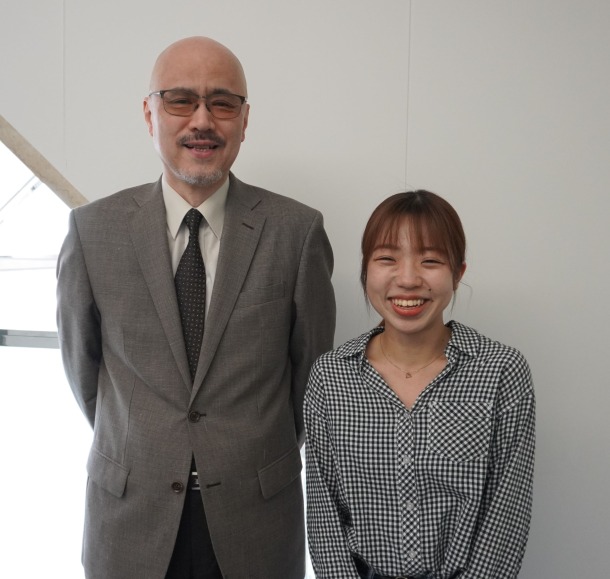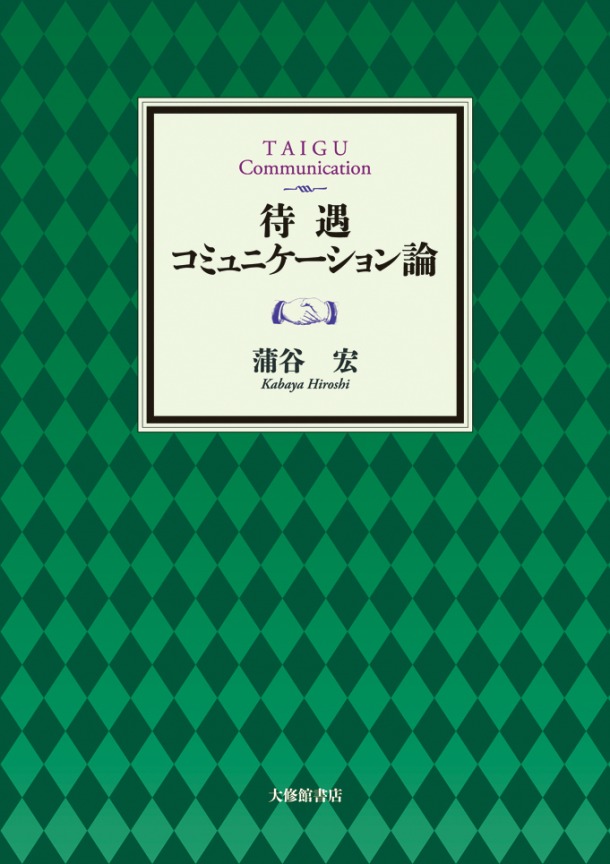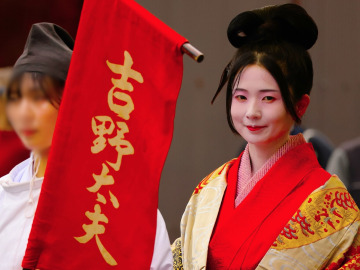Honorific Communication Theory [GEC Course]
Akira Kuwata, 2nd year master's student, Graduate School of Graduate School of Japanese Applied Linguistics

Professor Hiroshi Kabaya (left) and Akira Kuwata (right)
How and in what situations do you use honorific language in your daily life? Also, what kind of relationships are we aiming for through the use of honorific language?
We use honorific language in many situations in our daily lives. In universities, from students to teachers, and in business situations, from subordinates to superiors. In these cases, honorific language is used to show respect to superiors. However, in reality, honorific language is sometimes used in the opposite direction to the situations in which it is traditionally used, such as from teachers to students and from superiors to subordinates.

The textbook used is "Taigu(待遇) Communication Theory" by Hiroshi Kabaya (Taishukan Publishing)
We have learned that honorific language is a language that shows respect. Among honorifics, honorific language and humble language have been considered expressions used by those of lower rank to those of higher rank. However, the reality is that it is not possible to divide it into such simple categories. Every day, we build relationships using honorifics, humble language, and polite language without considering whether the person is higher or lower than us, and in some cases, even when it is clear that the person is lower than us.
In "Honorific Communication Theory" by Prof. Hiroshi Kabaya (Faculty of International Research and Education Graduate School of Japanese Applied Linguistics Professor), students can think about "honorific communication" and "respectful communication" through lectures and discussions. The course is open to students from any department, and many international students also take it. Students from diverse backgrounds come together to deepen their study of honorifics through discussions based on the situation-specific issues presented during the lectures.

Classes are conducted mainly in groups with discussion
Finally, I would like to offer one perspective on the question posed at the beginning. Why do we use honorific language? In this class, we learned that the conditions for using honorific language are not determined solely by whether the other person is in a higher or lower position than us, but that we should look at this issue from our own perspective as users of honorific language. "When should we use honorific language?" can also be seen as an expression of the type of relationships we want to build and how we want to be perceived through our use of honorific language.






![[Save version] Map of the four main campuses](https://www.waseda.jp/inst/weekly/assets/uploads/2025/09/17cb2975123fc5103172ef60bd98608d-610x458.jpg)

